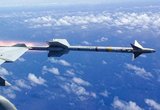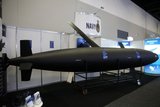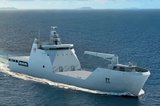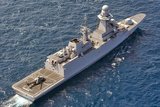West Africa maritime crime prevention in focus
Maritime security company GoAGT has called for increased levels of training and cooperation between the shipping industry and coastal countries in West Africa in order to prevent maritime crime from further spreading in the region.
The last five years has seen increasing instability throughout the Sahel and Sahara regions. The concern is, according to GoAGT, that the weakness of state in the region has the potential for the situation to further deteriorate in future.
Nick Davis, CEO, GoAGT, said: ‘When there was instability of this type in East Africa, piracy began spreading rapidly in the waters off Somalia. Simply put, piracy offered a viable economic alternative. In West Africa, the persistent threat to shipping and infrastructure is widespread, costly, and dangerously underreported, and with few barriers to entry other than speedboats, weapons and desperation, it could spread to the north.
‘The situation demands a coordinated response like the UKMTO and MSC-HOA for the whole of West Africa. This idea has been floated for a while, however, the multilateral naval cooperation that exists between coastal nations around the world, which has helped enormously in Somalia, seems to be far from reality off the West coast of Africa. Countries in the region don’t seem to be willing to cooperate or even agree on a structure for a reporting system, and this is essential to tackle maritime crime at source before it becomes a major problem.’
Between Western Sahara’s disputed northern border to Cape Palmas, Liberia, lies a coastline of over 4000km and an Exclusive Economic Zone that is almost 1 million km², which is around half of the total size patrolled in the Indian Ocean.
David added: ‘Sources suggest naval assets in the region suitable for the task of disrupting piracy number around 150 – that’s over 6500km² each, if they’re all fully serviceable and work together. However, these lack the necessary training and coordination and, with the high number of merchant vessels transiting cargo north to Europe, it creates an environment in which maritime crime could flourish very quickly.
‘The maritime industry should examine the potential for crime now rather than take the reactive stance it has taken in the past. Unified action, training of local assets and communication could defeat piracy before it becomes a threat. However, with ever-present disputes over offshore energy ownership and fishery zones a solution only seems possible after governments start seeing a sustained loss to their GDP.’
More from Naval Warfare
-
![How the Golden Fleet will change the US Navy acquisition process]()
How the Golden Fleet will change the US Navy acquisition process
The procurement of the future USN Golden Fleet is planned to be less bureaucratic than previous strategies, involving AI-enabled designs and scheduling tools to increase productivity and avoid delays.
-
![What capabilities are being tested under AUKUS Pillar II?]()
What capabilities are being tested under AUKUS Pillar II?
Collaboration on AUKUS Pillar II extends beyond the core trilateral agreement, presenting global opportunities for companies with advanced technologies.
-
![Australia signs US$2.8 billion ship deal with Austal but puts pressure on company to deliver]()
Australia signs US$2.8 billion ship deal with Austal but puts pressure on company to deliver
The A$4 billion Landing Craft Heavy contract for Austal follows on from a A$1 billion deal in December for Landing Craft Medium ships, but the Australian government has made it clear that a contract for Mogami frigates is reliant on the success of these two contracts.
-
![Turkey targets Italian market with strategic partnership on USVs and hybrid platforms]()
Turkey targets Italian market with strategic partnership on USVs and hybrid platforms
Havelsan, VN Maritime and Piloda Defence will collaborate to develop and integrate a range of maritime solutions with a view to secure a first procurement contract in Italy in the first half of this year.






















